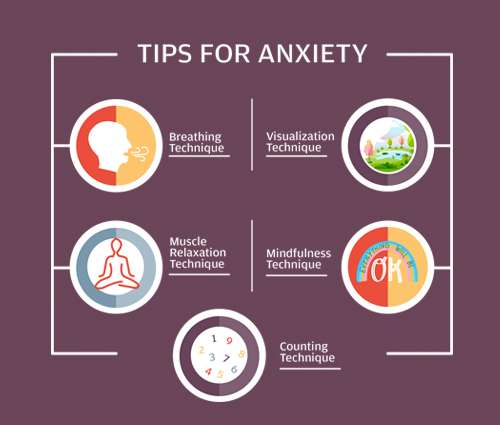Over a month has passed since the COVID lockdown and we’ve all been trying to cope as best we know how.
But staying indoors for a prolonged amount of time and listening to worrying news and death tolls on TV and on social media is bound to have some repercussions on your mental health. It’s normal and even expected for you to feel anxious as it is a typical human reaction to stress.
How do you know that you’re experiencing anxiety?
Well, it’s not the most pleasant of feelings. It expresses itself as a feeling of unease, nervousness and the unshakable thought that something bad is going to happen. You might find yourself persistently and intensely worried which makes it hard to concentrate on anything else. It also comes with physical sensations as well such as an accelerated heartbeat, sweating, trembling, tiredness and trouble falling asleep.
Luckily, a number of techniques have proven effective in helping relieve anxiety. Not all of the techniques might work for you so choose the one that seems the best for your anxiety. Alternate by trying out different ones and don’t give up if it doesn’t work the first time around.
Breathing Technique : When you’re anxious, breathing can help your body and your heartrate go down. Try following these steps:
- Sit in a quiet and comfortable place. Put one of your hands on your chest and the other on your stomach. Your stomach should move more than your chest when you breathe in deeply.
- Take a slow and regular breath in through your nose. Your hand on your chest should not move while the hand on your stomach will move slightly.
- Breathe out through your mouth slowly.
- Repeat until you feel your anxiety lessening.
Visualization Technique:
- Choose a “happy mental place”. We all have that one place that makes us feel happy and safe. For some it might be the beach during sunset, for others it might be a relaxing trip to the mountains, or chilling with your favorite group of people or even a restaurant or coffee shop that always cheers you up. Personally, my happy place is a quiet spot by the sea, where I can watch the seagulls and listen to the waves.
- Close your eyes and imagine your own happy place. Visualize how it looks in the tiniest details (the clear blue sea, the snowy tips of the mountains, your friends smiling), the sounds you’d hear (the gentle hum of voices, the whisper of a soft breeze, the sound of birds), etc. Envision yourself enjoying this place.
- While you do this, breathe regularly in through your nose and exhale through your mouth.
- Keep doing this until you feel your anxiety lessening.
Muscle Relaxation Technique: Anxiety usually induces tension in the body and you might feel stiffness and pain in your muscles. To relieve that tension, follow these steps:
- Sit in a quiet and comfortable place. Close your eyes and focus on your breathing. Breathe slowly into your nose and out of your mouth.
- Use your hand to make a tight fist. Squeeze your fist tightly.
- Hold your squeezed fist for a few seconds. Notice all the tension you feel in your hand.
- Slowly open your fingers and be aware of how you feel. You may notice a feeling of tension leaving your hand. Eventually, your hand will feel lighter and more relaxed.
- Continue tensing and then releasing various muscle groups in your body. A common technique is starting from the feet and working your way up until you reach your face. Make sure to avoid tensing areas in your body that are injured or painful.
Mindfulness Technique: Staying present can help you create a calm state of mind when you feel your thoughts racing and anxiety building.
- Sit in a quiet and comfortable place.
- Try and list all the things you can see, hear, smell and touch around you. Doing so will keep you grounded in the present and might help lessen your anxiety.
Counting Technique: Sometimes, something as simple as counting (out loud or in your head) is enough to lessen your anxiety. That’s because you’re forcing your mind to focus on a specific task and keeping it busy. Other distracting activities can also be useful, such as singing a song you like, reading a book or watching an episode of your favorite show.
If you need any help or advice regarding anxiety or anything else that you might be experiencing, please feel free to reach our School counselor on [email protected]
She is also having online counseling sessions, so please don’t hesitate to contact her to set an appointment.
Stay safe



